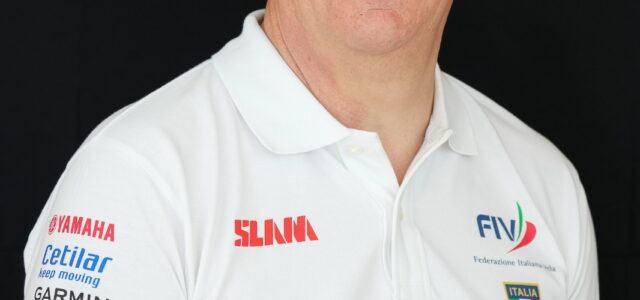
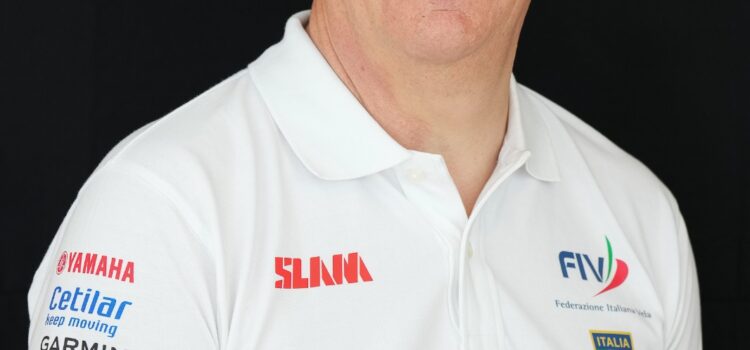
Sailing and Federations, FIV Technical Director Michele Marchesini about the 2023 season
Breaking newsEnglishFedervelaIn evidenzaVela 28 Dicembre 2023 Zerogradinord 0

Genoa – The last statement from the Director of the Italian Sailing Federation, Michele Marchesini, concluded by dedicating 2023 – historic for the great victories and podiums obtained by Italian sailing – to the never forgotten Valentin Mankin. We want to start again from this.
- Let’s start with the year that is coming to an end
The outcome of 2023 is extraordinary, a historic year for Italian Olympic sailing, for successes at World Championships, European Championships and the World Cup. How does the DT evaluate it outside of the results?
What I consider truly positive is the solidity we have achieved, the continuity of results and growth now separated from individual names, individual crews. This is the result of the setting. It took years, but it’s where I wanted to get to from the beginning. The weak point that President Ettorre and President Ettorre discussed from the start.
Are there specific goals that you thought were critical for 2023 and were achieved?
It was a particular year, central in an Olympic cycle reduced to just three years. And intense. In 2023, the Olympic and World Qualifying Test Events were condensed into six weeks, events normally separated from each other by ten to twelve months. Then, to follow, already the second round of awarding Olympic cards for two classes. The objectives for the season were clear and precisely on the results at these regattas. We hit the targets, with eleven podiums and three victories between European Championships, Test events and World Championships and then the eight classes qualified for Paris 2024, which place us at the top in the world for this aspect, even if I have never hidden the fact that I don’t consider the number of classes as a priority: it’s the return journey from the Olympics that counts, not the outward journey. We also achieved excellent results at the Under level of the Olympic class: many (14 ed.) World and European podiums in seven different classes. The team that generates its own momentum.
- Towards the Olympics
How are you planning the team’s preparation for the Olympics?
The work has now entered its most delicate phase, with the “banks” separating and that of specific preparation for the ’24 Olympic regatta which increases the level of attention to detail and progressively reduces the number of athletes as I close. classes and I will define the team for Marseille. The planning is very differentiated; It might seem difficult to understand, but the needs are very different. Olympic sailing is not tennis, formula one, football, or golf… it is nothing other than sailing and, if you lose sight of the identity and nature of what you are doing and fall into trivializations or superficial approaches, you can make splashes from which you cannot recover.
There is already strong anticipation about the names for the Games…
Wait, yes. And how could it be otherwise. “Who’s Going to the Olympics?” is the question I’ve been asked every day since we got the passes to Paris… I can confirm that I will do as I did for the previous Olympics and make the decisions at different times. I already have very clear ideas about the times and also some of the names. The choice of the team is made by the Technical Director, but let’s not forget that it then passes through the Federal Council and that whoever “leads to the Olympics” is CONI.
Are there specific aspects you are focusing attention on to ensure optimal performance?
The answer is yes, we are testing and preparing solutions in different sectors, but I won’t go any further.
Next year will open immediately with the ILCA 6 World Championship precisely to indicate that 2024 will be compressed and full of events. Are there any particular strategies that you intend to adopt to manage the close commitments?
Here the direct and continuous interaction between DT, performance manager, athletic trainer, medical sector, physiotherapists and in-water technicians is everything. For real-time monitoring and management we have refined, since the Olympic cycle for Tokyo, a complex tool with which we collect and manage the parameters of form, fatigue and peaks and modulate the loads effectively. This is one of the areas where we are really ahead.
- Expectations for the Olympics
What are your expectations for the Olympics? Have you identified specific goals to achieve?
The answer is as crude as it is simple: you go to the Olympics for the Medals, to let the top crews win first and then to let the others compete at their best. In three disciplines today we can really play, even if the new final formats chosen for some classes are to be taken literally with a pinch of salt. In every sense: opportunities and risks.
Let’s follow this order “opportunities and risks”… are there opportunities that you think could be exploited to further improve the team’s performance?
I copy and paste what was said before: the answer is yes, I absolutely think there are opportunities to be exploited, but I won’t go any further. We are very busy on some fronts and have been carrying out special projects for some time with the CONI Institute of Sports Medicine and Science and other cutting-edge excellence in sectors where, together with my collaborators, I have identified margins to be exploited.
Are there any critical issues and particular situations that you plan to face during the Games?
Every Olympics has its own story, but what always counts is managing to keep things simple. And this is not simple, if I may make a pun. The stone on which to rest everything, the point of solidity, is to have an agile team months beforehand, in which everyone is aware of their positioning, their role and their objective: athletes, technicians, support staff. My choices can all be read with this simple key. In large teams, like ours will be in Paris 2024, it is more delicate to let those who have to win win. An important difference for us compared to Tokyo 2020.
In a word, what is the challenge that the DT sees as the main one to face in the Olympic year?
Time represents the most important resource, its management is the real challenge. Today I feel in line with the plan and program that I had decided after the Olympics in Japan, we must continue like this. The brazier in front of the Eiffel Tower will be lit in two hundred and twelve days, the closer you get, the smaller the margin of error becomes. Until it is null.
The famous countdown on the Technical Director’s screen?!
Yes, it starts again every four years…

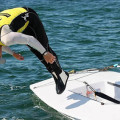
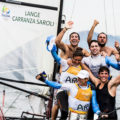
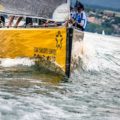
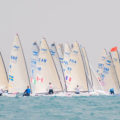
No comments so far.
Be first to leave comment below.